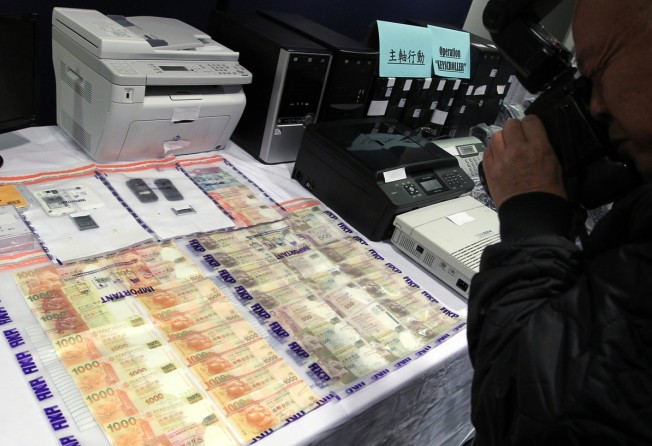
Hong Kong money laundering police face record deluge of 100 reports a day
More than 100 reports per day reach the desk of unit investigating suspicious cash transactions, amid Beijing's graft crackdown

Police investigators at the forefront of Hong Kong's battle against money laundering face a flood of reports, with more than 100 suspected cases landing on their desks every day - almost double the amount of just three years ago.
New figures from the Joint Financial Intelligence Unit, obtained by the Sunday Morning Post, reveal that 37,188 suspicious transaction reports were made last year, up from 32,907 in 2013.
A police source with knowledge of the unit's operations said it was ironic that the number of reports had snowballed over a period when a significant number of officers had left the force to join the private sector.
In some cases, they joined the very banks whose beefed-up compliance departments are the source of most of the suspicious reports.
"The majority of these 37,000 cases will not be pursued, but they still have to be assessed. And the ones which do need proper investigation can take years to get to the bottom of due to their complexity. It's a hell of a caseload,'' the source said.
A police spokesman declined to respond to questions about the size and capability of the unit.
The data also reveals the first reports from auction houses, with 31 suspicious transaction reports made between 2012 and 2014. During this period, Hong Kong surpassed global auction hubs New York and London in a range of record-breaking sales in items such as jewellery.
This has prompted concerns that auction houses could offer an effective way to hide ill-gotten gains as other traditional avenues such as casinos and banks come under greater scrutiny amid Beijing's crackdown on graft.
Last year, nine suspicious transaction reports were made by auction houses in Hong Kong - the same as in 2013.
"Auction houses are an obvious place for money laundering if you want to, because they are single, high-value transactions," said Robert Barrington, executive director of Transparency International UK.
He called for stricter reporting regulations for auction houses as they "appear to be doing almost no due diligence on the origins of their clients funds".
Both Sotheby's and Christie's, the world's biggest auction houses, refused to divulge how many suspicious transaction reports they had made globally. They emphasised their compliance efforts.
"In many jurisdictions where Sotheby's operates, there are requirements to notify certain regulators about suspicious activities, and Sotheby's complies with all such laws," a spokesman said.
A Christie's spokeswoman said its programme "complies with both our legal obligations and industry best practices in preventing money laundering". A spokeswoman for Bonhams, which started selling in Hong Kong in 2007, said it "complies with current anti-money laundering legislation in all countries that it operates [in] and is aware of its responsibilities".
Lawyer Simon Deane, of Deacons law firm, said it was possible that current laws in Hong Kong would be extended to cover auction houses. "Goods for auction are a store of financial value and therefore purchasing them at auction must be considered as a potential money-laundering tool," he said, which "would force auction houses to do client due diligence".
A police spokesman said new anti-money-laundering laws introduced in 2012 as well as stricter reporting regulations - especially for financial institutions - were the key reasons for the increase in reports.
The banking sector accounted for most of the suspicious reports with 31,000 or about 84 per cent, followed by money service operators and insurance and securities firms.